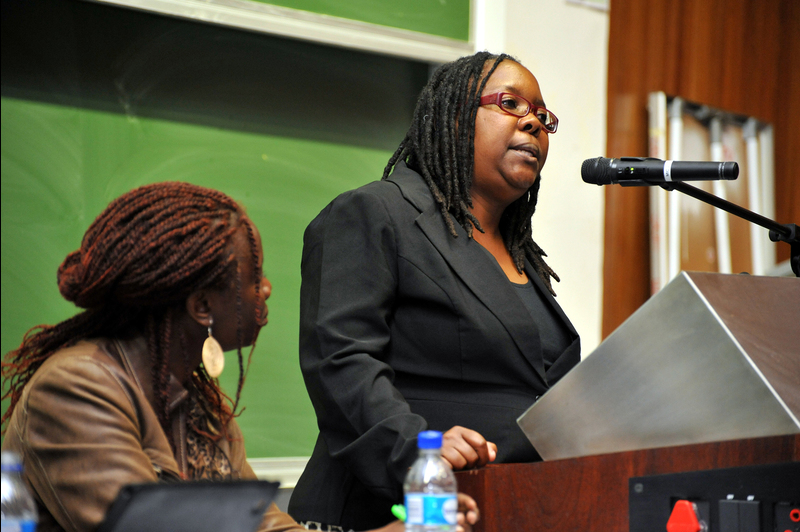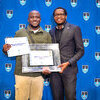Zimbabwe's readiness for elections debated
15 May 2013 | Story by Newsroom
All but one of a high-profile panel of Zimbabwean politicians and activists agreed that the country still had much to do to prepare for general elections later this year, and that holding elections before certain conditions were instituted would do more harm than good to the once-thriving nation.
These sentiments were aired at the second instalment of the 'To whom does Africa belong?' series, organised by UCT students to engage with key issues the continent grapples with, which took place on Upper Campus on 26 April.
The panel comprised Dr Alex Magaisa, representing Prime Minister Morgan Tsvangirai's Movement for Democratic Change (MDC-T), Qhubani Moyo, of the Welshman Ncube-led Movement for Democratic Change (MDC-N), Gabriel Chaibva, of Zanu-PF, Virginia Muwanigwa of the Women's Coalition of Zimbabwe and Professor Brian Raftopoulus of the Crisis in Zimbabwe Coalition. The debate took place in a packed PD Hahn lecture theatre and addressed this topic: State of the Zimbabwe Transition: Assessing the Preparedness of Zimbabwe to hold a democratic free and fair election. It was jointly organised by UCT's Zimbabwe Students' Society, the university's Students' Representative Council (SRC), the civil-society movement PASSOP and the Crisis in Zimbabwe Coalition.
Magaisa stressed that the country needed to avoid what happened after the 2008 election, when an "illegitimate" government claimed power.
"The critical issue that all political leaders are concerned with is legitimacy," said Magaisa. "Leaders are trying to be consultative."
New laws must align with Zimbabwe's new Constitution, which Magaisa described as "one of the greatest achievements of the Global Political Agreement (GPA)", which was an agreement between Zanu-PF and MDC-T to resolve the challenges facing the country.
Moyo noted a number of conditions that needed to be met for the election to run smoothly. He urged the security sector to perform its function impartially and for voter-registration mechanisms to be "cleaned" and made accessible to the one million new voters on the roll since the 2008 elections. He also called for international observers to be given unimpeded access to electoral processes.
"According to the new Constitution, we can only hold an election in mid-August for the earliest," said Moyo. "There is no need to rush the elections if doing so would be at the expense of the new Constitution and developing [the necessary] infrastructure."
Chaibva disagreed.
"We in Zanu-PF are a law-abiding..." he began, only to be interrupted by howls of laughter from the gallery. "There is no provision for an extension for further elections after 29 June [the date scheduled for the Zimbabwe election].The supreme law of the land must be observed."
Some appeared less concerned with matters of procedure. "As the politicians are speaking, it is tragic that they are caught up in issues of process while the voice of the people - who are the victims in all this - is not quite coming out," said Muwanigwa.
Muwanigwa did note with pleasure that all political parties were preaching non-violence in the run-up to the elections.
Raftopoulus, meanwhile, insisted that sanctions on the country needed to be lifted for the GPA to be optimally implemented and for Zimbabwe to be able to truly plan for a unified and prosperous future.
"All parties will need to work together, and look beyond the election," urged Raftopoulus. "We should be talking about what kind of partnership-based political dispensation can exist post-election."
The rapturous applause that greeted Raftopoulus's closing remarks perhaps summed up the greatest concern of those in attendance.
"Zimbabwe's sovereignty must come from the will of the Zimbabwean people."
 This work is licensed under a Creative Commons Attribution-NoDerivatives 4.0 International License.
This work is licensed under a Creative Commons Attribution-NoDerivatives 4.0 International License.
Please view the republishing articles page for more information.










